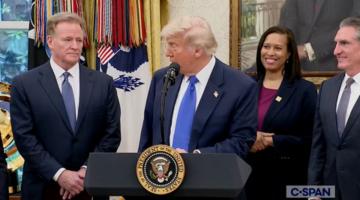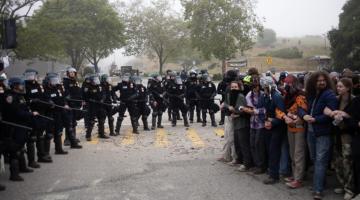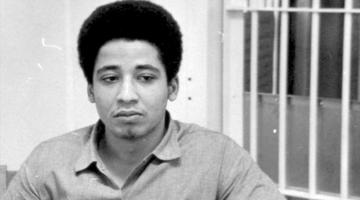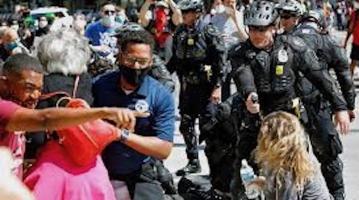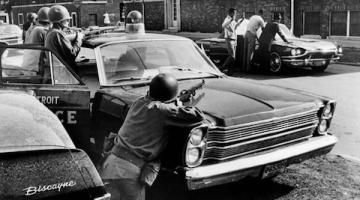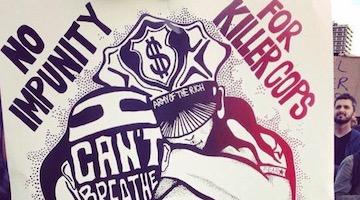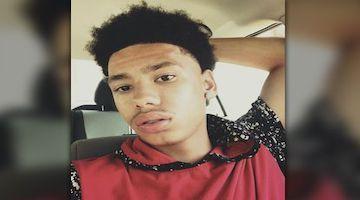Wilson’s 40-year ordeal has ended, but his attorneys hope to make Chicago prosecutors pay for their crimes.
“Jackie and his brother were tortured by notorious police lieutenant Jon Burge and his crew of ‘ass-kickers’ into making confessions.
On September 22, 2020, 69 year old Cook County, Illinois Criminal Court Judge William H. Hooks commenced the long awaited bench murder trial of police torture survivor Jackie Wilson. Convened in the midst of the pandemic, the Judge, witnesses, and courtroom personnel all sat, wearing masks, behind plastic shields. Family, two members of the defense team and the media were all socially distanced in the cavernous old court room on Chicago’s southwest side, while Jackie Wilson and his two lead counsel sat a few feet apart at counsel table. A documentary film crew filmed the proceedings from the jury box, and a representative from the Chief Judge of Cook County monitored the proceedings for conformance to COVID 19 protocols.
Jackie Wilson and his brother Andrew were arrested in 1982, after an extensive and brutal five-day manhunt, for the murder of two white Chicago police officers. They were tortured by notorious police lieutenant Jon Burge and his crew of “ass-kickers” into making confessions to the crimes. The torture included electric shock of both brothers, burning Andrew on a radiator and placing a bag over his head, beating Jackie over the head with a telephone book and threatening him with a gun, and beating and kicking both brothers.
Unmistakable evidence of the torture was reported by the Chicago police superintendent to State’s Attorney Richard M. Daley and his top assistants, including Deputy Chief Bill Kunkle, but they refused to investigate, and Kunkle instead proceeded to prosecute the brothers. A politically connected judge denied the brothers’ motion to suppress the confessions, they were tried together, and convicted. Andrew, who was identified as the shooter, received the death penalty, while Jackie, who, according to the main eyewitness, stood by in shock, received two life sentences.
Both convictions were reversed on appeal, Andrew’s on the basis of his tortured confession, Jackie’s on the grounds that his case should have been severed from his brother’s and tried separately. In 1988, Andrew was again convicted of both murders, and this time received two life sentences, while Jackie was retried in 1989.
Jackie Wilson’s retrial not only featured his confession, where he falsely admitted to encouraging his brother to shoot the second officer, but also a jailhouse snitch of international infamy, William Coleman, a British national who, under the control of prosecutor Nick Trutenko, and in exchange for a deal that included dismissal of a six to 30 year trafficking of cocaine charge, spun a yarn about Jackie confessing to him in the Cook County Jail library. This time, Jackie was convicted of murdering the second officer only, and was again sentenced to life.
Jackie Wilson remained in prison for decades until, in 2015, the Illinois Torture and Relief Commission, which was established to review Burge related torture allegations, referred Wilson’s case back to the Cook County criminal court for a new hearing on his torture allegations. This hearing took place in late 2017 and early 2018, with the State represented by the Office of the Special Prosecutor (OSP). At the taxpayers’ expense and at the urging of the Fraternal Order of Police, the OSP blindly defended against a wealth of accumulated torture evidence, but Judge Hooks, in a 119-page decision, found the allegations of torture credible, granted Wilson a new trial, and suppressed his confession. The Judge also granted Wilson a recognizance bond, and he was released in June of 2018 after spending more than 36 years behind bars.
“Judge Hooks the allegations of torture credible.”
Undeterred, the OSP appealed, but the Illinois Appellate Court affirmed and sent the case back to Hooks. The OSP, now stripped of the false confession, continued their FOP-inspired crusade, this time building their prosecution around the bought, manufactured, and completely discredited testimony of William Coleman.
The trial was set for early May 2020 and Wilson’s lawyers filed five motions in limine and a motion under the Illinois Jailhouse Informant Statute for a hearing on whether Coleman was sufficiently credible to testify. The OSP responded by saying that they could not locate Coleman and that he was most likely “out of the country.” Producing nothing about his post 1989 history or whereabouts, they moved that he be excused from appearing at the hearing and that he be declared “unavailable” so that they could introduce his 1989 testimony.
Then the pandemic hit with full force, and all proceedings were delayed until July, when the motions were argued via Zoom in several lengthy proceedings. The Coleman motion was argued, with the OSP contending that, despite a “tremendous effort,” they had not found Coleman and, despite a known record of dishonesty, fraud and violence that spanned, from 1964 to 1989 and several continents, they intended to introduce his prior testimony at trial. The judge repeatedly admonished the OSP prosecutors about their ethical obligations concerning the Coleman evidence, but, without further comment, ultimately denied Wilson’s motion to bar Coleman.
“The OSP built their prosecution around the bought, manufactured, and completely discredited testimony of William Coleman.”
The trial then began in late September with the evidence of 13 of the OSP’s 20 witnesses, including the only two eyewitnesses, being declared unavailable, permitting the prosecutors to then read their 1989 testimony into the record. The first eyewitness, Tyrone Sims, had testified in 1983 that Jackie had stood by in shock during the shooting, but had backed off from that testimony in 1989 after ASA Trutenko had coached him. After the OSP read the prior testimony of the second ‘unavailable” eyewitness, DeWayne Hardin, who said in 1989 that Jackie Wilson had left the scene smiling, the defense called him live via Zoom to dramatically recant that testimony, saying that he had been browbeaten by Trutenko and tortured by a Burge henchman to lie on Jackie at the 1989 trial.
The OSP then read Coleman’s 1989 direct examination testimony into the record. The Judge, as a compromise, had permitted the testimony, but gave the defense wide latitude in offering all manner of evidence of Coleman’s lack of credibility, reputation for dishonesty, racism, and violence. Not only was Coleman’s cross examination at the 1989 trial read into the record by the defense, but other subsequent impeaching testimony that Coleman gave on Burge’s behalf during Andrew Wilson’s civil damages trial later in 1989 was also read, and 15 Exhibits demonstrating Coleman’s record for international mendacity were also admitted into evidence. In what may have been a first in legal jurisprudence, the Judge, sensitive to the defense’s arguments that Wilson’s due process right to confrontation was being trampled, also allowed defense counsel to pose questions to the absent witness (played by another of Wilson’s lawyers) that he would have asked if the witness were on the stand. After two days of Coleman, the Judge cried “no mas,” saying that the defense was not only kicking a dead horse, but also had kicked it into the ditch and was continuing to kick it.
“The Judge allowed defense counsel to pose questions to the absent witness.”
As one of their last witnesses, the OSP inexplicably called former Deputy Chief prosecutor Bill Kunkle to the stand. After twice prosecuting the Wilsons, Kunkle had gone on to represent Burge in Andrew Wilson’s civil torture case and had used Coleman as a snitch witness against Andrew a few months after he had testified against Jackie. Kunkle admitted that Coleman was a con man, that Coleman had contacted him from England several years after his 1989 testimony and had attempted to extort him, perhaps for as much as $50,000, so that he would not “flip.” He also admitted that Trutenko had tendered Coleman to him in 1989, and that Trutenko had gone to England in early 1992 as an emissary to talk to Coleman.
After the Judge, reluctantly it seemed, denied the defense motion for a directed finding of acquittal, Wilson’s lawyers put on their defense. It featured Coleman’s former wife Sheila and his now adult son Emile, both of whom, via Zoom from England, told harrowing tales of Coleman’s deceit, domestic violence, hatred of Black people, and possible connection to the British Special Branch as a low level informant. Award winning journalist turned investigator John Conroy, who had been retained by the defense to uncover new information about Coleman and, if possible, to find Coleman himself, told of first watching Coleman in action in 1989 when he covered the Andrew Wilson civil trial for the Chicago Reader, and recounted his exhaustive search that included finding Sheila and Emile and numerous other relatives and associates. When asked on cross examination whether Coleman was alive or dead, Conroy responded that although no one he talked to had heard from Coleman for more than 20 years, one family member said he had been thought dead in the past, only to appear again.
“Kunkle admitted that Coleman was a con man.”
The defense’s last witness was Nick Trutenko. Prior to his testimony, the State’s Attorneys’ Office had been remarkably resistant to producing Trutenko’s personnel file, and had professed to have no information about Coleman. The Judge had ordered the file produced, and the defense first examined Trutenko about a recent incident of prosecutorial misconduct revealed in the file -- his threatening of a Black woman who refused to testify before the grand jury. Next the defense had a surprise -- Conroy had discovered that during his 1992 trip to England, Trutenko had stood as godfather for one of Coleman’s infant daughters. When confronted with the baptismal certificate, Trutenko embraced Coleman, whom he referred to as “Billy,” as a changed man, with whom he had formed a trans-Atlantic post-trial “bond.” When pressed about when he last spoke with Coleman, Trutenko shocked the courtroom, saying that he had received an email from “Billy” only days before. When asked about whether he had discussed Coleman with the OSP prosecutors, he denied doing so.
The Court then took a short recess to contemplate what had just occurred. Trutenko, who was still under examination, fled the courthouse, together with two Assistant State’s Attorneys, one of whom was representing his interests, the other who was representing the State’s Attorneys’ Office. When the Judge reconvened the proceedings minutes later, the OSP dropped another bombshell -- they were dismissing the case with prejudice because Trutenko had committed perjury on the stand when he denied that he had talked to the OSP about Coleman.
“Trutenko fled the courthouse, together with two Assistant State’s Attorneys.”
The Court then ordered that Trutenko preserve all emails and other electronic communications, and invited the defense to file a fees petition as a sanction for an eight day trial that he characterized as a “waste of time” and a colossal waste of taxpayers’ money. He ordered the OSP to reveal their billing records, which documented that they have billed $730,000 for their work on the case through September, and have received over $560,000 to date.
At a hearing the next day, the OSP lawyers represented that Trutenko’s lawyers had told them not to ask Trutenko about his post 1989 relationship with Coleman because it was “weird,” and subsequently the State’s Attorneys’ Office revealed that Trutenko had “reset” his cellphone directly after his testimony and that the Illinois Attorney General had opened a criminal investigation. Unfortunately, the Cook County State’s Attorney’s Office has again, post-trial, aligned itself with Trutenko in a unified attempt to suppress the email that Coleman sent to Trutenko just prior to Trutenko’s testimony.
While the dismissal of the charges with prejudice was an important victory in a notorious wrongful conviction case that arose from the Chicago police torture scandal, it came just before what the defense was all but certain was going to be a not guilty verdict. In pursuit of that result, the defense has filed a petition for a certificate of innocence. Additionally, they have filed a motion for monetary sanctions against the Office of the Special Prosecutor and the Cook County State’s Attorneys’ Office for a pattern of prosecutorial misconduct in the Jackie Wilson case that has spanned nearly 40 years and centers around Trutenko and Coleman. The motions will be argued in December.
Flint Taylor is an American human rights and civil rights attorney from the People’s Law Office which is based in Chicago, Illinois, who has litigated many high-profile police violence, government misconduct and death penalty cases. He was one of the trial attorneys in the Jackie Wilson case. His recent book, The Torture Machine, (Haymarket, 2019) documents the history of police assassination and torture in Chicago.
COMMENTS?
Please join the conversation on Black Agenda Report's Facebook page at http://facebook.com/blackagendareport
Or, you can comment by emailing us at comments@blackagendareport.com


